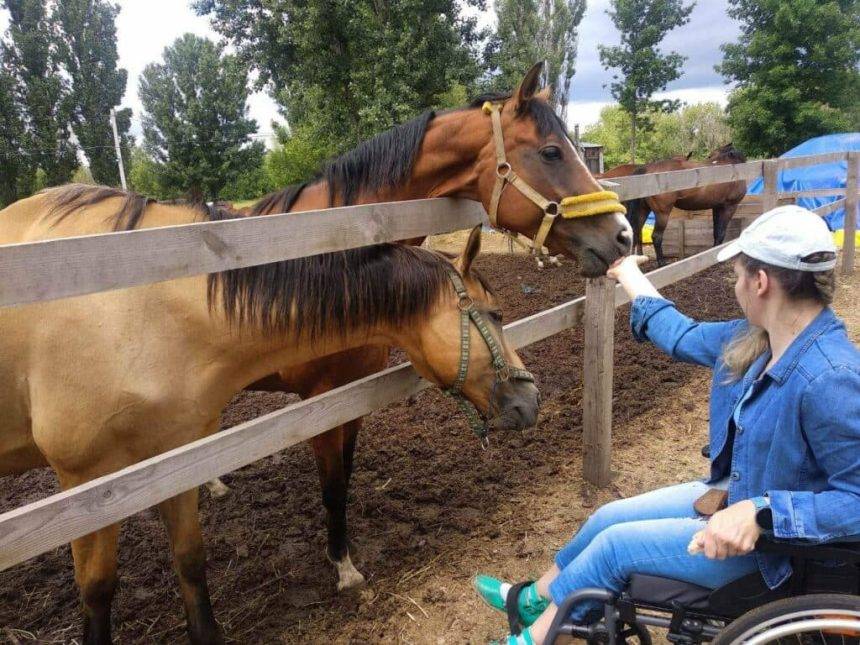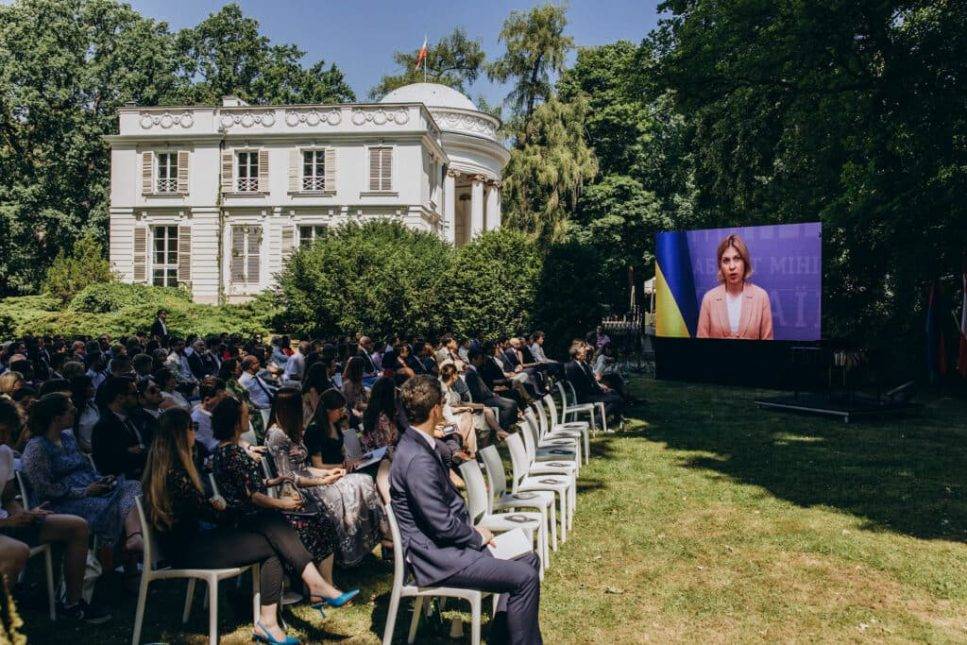
Five years of EU4Youth: young Ukrainians defy circumstances to develop new skills and businesses with EU support
29/06/2023
Despite the Russian aggression against Ukraine, young Ukrainians have managed to build and expand many new businesses and start-ups with EU support. As the EU4Youth programme closes its latest five-year cycle, it looks back on its achievements in strengthening young Ukrainians’ education and employability, entrepreneurship and employment, and their engagement and empowerment.
As recorded in the programme’s yearly reports, EU4Youth actions in Ukraine have covered direct training and mentoring, matchmaking between employees and employers, grants to new businesses, policy to create new jobs and improve skills, tailoring education to the market, and local initiatives to support the most vulnerable.
Entrepreneurship and employment
Nearly 300 job seekers have received training to improve their career opportunities or got certified for existing skills since 2019, of whom almost 85% were women. Through this process of formal certification and validation of their skills, which are most demanded on the job market, disadvantaged youth have improved their chances of finding suitable jobs.

A total of 36 start-ups led by young Ukrainians have been launched with support from EU4Youth projects. Moreover, 323 young people – mostly from disadvantaged communities – have received funding to advance their entrepreneurial projects. One of these start-ups is the Hippotherapy and Development Centre in Cherkasy, which benefited from an EU4Youth project that focuses on unlocking the potential of young social enterprises in Moldova and Ukraine.
The full-scale Russian invasion has complicated but not stopped the work that Anna, the Centre’s founder and expert in social work, is doing: “Fortunately, our rehabilitation centre is not located directly in the war zone, so we can work smoothly. But four of our horses had to be transported under fire from the war zone; luckily, no one was injured. However, there were doubts whether we would have enough food and equipment to look after the animals. Still, volunteers again came to help and provided the Centre with everything we needed. During such difficult times, everyone helps each other, which is very encouraging.”
Engagement and empowerment
Due to the Russian aggression against Ukraine, the final national policy lab event has to take place online in February 2023, but since the start of the Youth Engagement Roadmaps project in 2020 the labs have seen some 340 participants.
While the current cohort of EU4Youth Alumni is still working on their projects, the previous cycles have seen 30 Ukrainian alumni bringing to life 19 different initiatives to support disadvantaged youth. Together, these completed projects have branched out to benefit 360 people.
These initiatives have also been affected by the war in Ukraine: Kateryna Korsun and Sofiia Korol had to completely re-conceptualise their project. Their focus shifted to helping the Ukrainian army and, at the same time, promoting youth activism by offering project participants more opportunities for personal growth. This is how ‘Sew to Survive’ was born, based in the Vinnytsia region of western Ukraine.

“We could unite youth in a difficult time and give them the opportunity to volunteer, be part of a team and to develop their skills. Every participant could contribute to helping the Ukrainian army and bringing Ukraine closer to its victory,” said the two activists. “Spending time together and focusing on active collaboration gave the youth a chance to distract themselves from the obsessive thoughts about the war.”
Education and employability
EU4Youth has helped over 2,600 young Ukrainians gain new skills to improve their chances of finding better employment opportunities. This was achieved through 135 competence development activities, held in a face-to-face format for maximum impact.
To help further their career orientation or business development, over 500 young people have received mentorships, and more than 630 companies, organisations and experts were engaged directly to provide young people with non-formal education opportunities, employment and internships.
Through the programme, two outstanding students from Ukraine received full EU4Youth scholarships to pursue a degree with the College of Europe for the 2021-2022 and 2022-2023 academic years. During the graduation ceremony of the first ten scholars from the Eastern Partnership countries, the Deputy Prime Minister for European and Euro-Atlantic Integration of Ukraine Olha Stefanishyna reminded the students that “the EU was created to ensure peace and development on the European continent”, expressed her gratitude for the support of Ukrainian students through the initiative ‘We, Natolinians for Ukrainians’, and urged the audience to try to create the world they would like to live in.

Youth policy landscape
With the war, young Ukrainians have been struggling for survival, often working outside their usual fields to assist those in need. Many have been leading the humanitarian response, achieving extraordinary results. The great potential and impact of the youth sector in Ukraine has been recognised by the state as well as the international donor community, translating into new programmes and youth centres opening across the country.
While overshadowed by the Russian war of aggression against Ukraine, the different EU4Youth projects have been successful in bringing youth closer to the political debate. Despite some projects being forced to terminate, others managed to redesign some of their planned activities or, in a few cases, reorient funding towards humanitarian aid projects.
Many projects have focused on the development of soft skills for young people to be more confident and critical, supporting structures and youth groups at the national level. The success stories are there, but there is space for further development for youth policy and youth interventions in Ukraine, with a focus on:
- Advancing initiatives for meaningful youth engagement in policy making;
- Investing in sustainable and dedicated safe spaces that allow young people to access information and services as well as actively engage and participate;
- Strengthening professional psychosocial support opportunities for young people, to help them better cope with the stress caused by instability and insecurity in the region while becoming more vocal and resilient at the same time.
Yearly data and recommendations
With the 2022 Achievements Report closing the five-year monitoring and evaluation cycle, the EU4Youth programme offers four comprehensive reports for policymakers, civil society leaders and educators designing and implementing youth empowerment initiatives and policy measures in Ukraine. These reports provide a holistic picture of interventions conducted so far through the programme along with their impact. Each report concludes with observations of efficacy and youth policy recommendations, drawing from the year-specific conclusions.
News
-
Ukraine – is a Eurointegration front-runner, – Deputy Ambassador of the EU
-
The EU has supported Docudays UA since 2018
-
Сross-border renewable energy acceleration project to advance Ukraine’s green recovery
-
Kyiv, let’s celebrate International Children’s Day together!
-
Media literacy workshop in Cherkasy
-
EU provides €36.8 million in lifeline funding for UN Refugee Agency